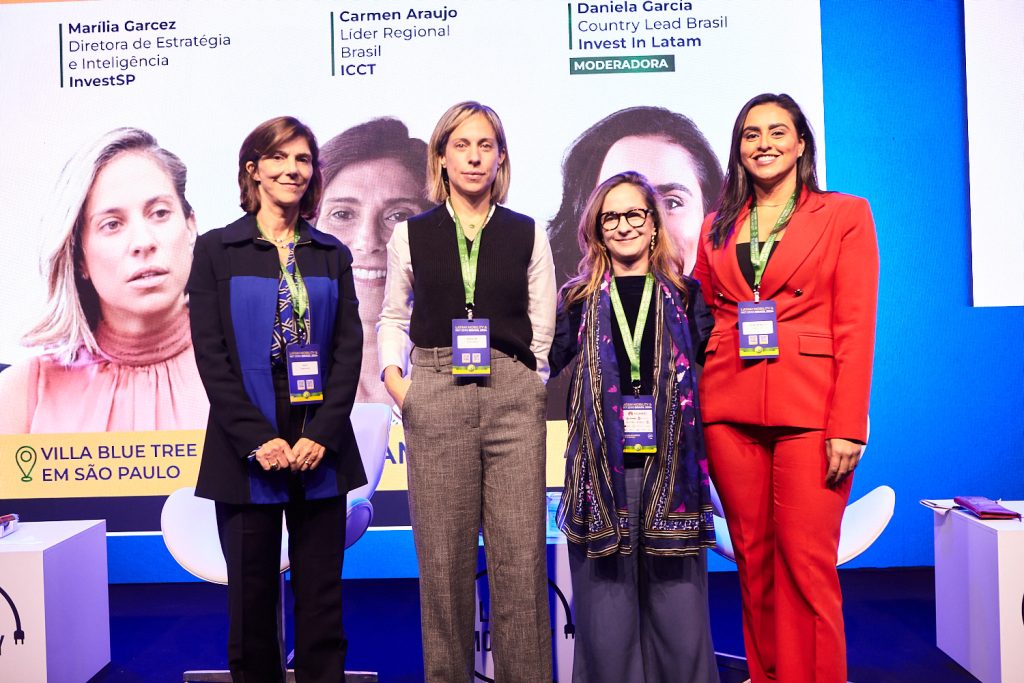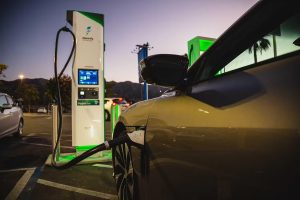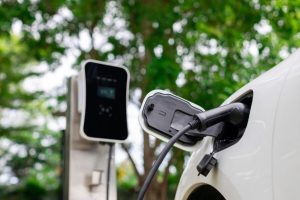
Representatives from São Paulo, ICCT and InvestSP Analyze Brazil’s Energy Transition

On July 1st and 2nd, the city of São Paulo became the epicenter of mobility and sustainability, opening its doors to the “Latam Mobility & Net Zero: Brazil 2024“, which brought together the most prominent leaders of the public and private sector who analyzed the current situation and prospects in the country and the region.
The meeting began with the panel “Public sector vision on electric mobility, clean fuels and energy transition“, which was attended by Carina Dolabella, Head of the Climate Change and Sustainability Unit of the State Secretariat of Environment, Infrastructure and Logistics of São Paulo; Carmen Araujo, Regional Leader of ICCT Brazil, and Marília Garcez, Director of Strategy and Intelligence of InvestSP, under the moderation of Daniela Garcia, Country Leader Brazil of Invest In Latam.
You may also be interested in: Brazil Debates Before the UN the Use of Resilient Transport Infrastructure
Adaptation and Mitigation
Carina Dolabella began the analysis by indicating that in the region they have two axes that make up their climate strategy. “We have the mitigation axis and the adaptation axis. In addition, within our perspective we have a great challenge in understanding the indicators to monitor so that we can evaluate the effectiveness of the initiatives and the risks faced by the state of São Paulo.”
Dolabella explained that infrastructure forms a fundamental part within the state’s strategy. “When we talk about resilience, we must take infrastructure into account, as it is one of the most costly factors in the face of climate change challenges, and although today we have one of the most robust in the country, it is necessary to transform it and take advantage of it.”

The São Paulo representative pointed out that the state’s premise is the diversification of technological pathways. “In our climate action plan we contemplate electrification, the development of biofuels and the substitution of diesel to decarbonize transportation. To do this, we rely on the State Energy Plan 2050, the first subnational plan in Brazil with a net zero pathway, together with our logistics and investment plans, which take into account the mitigation and adaptation axes.”
Presenting Projects
Marília Garcez, InvestSP‘s Director of Strategy and Intelligence, noted that Brazil will continue to be a road-based country. “What is the solution available to make the switch from diesel to a cleaner fuel? We have been working on this, we have a specific funding line in development to support initiatives and this type of project will be our biggest challenge.”
“Currently, we have a very interesting project, which I can’t give too many details about. We are planning a power train that takes into account several fuel inputs, such as biomethane, green hydrogen and ethanol, and in turn, building a closed circuit to test it, and then expand it and take it to other municipalities,” explained Garcez.
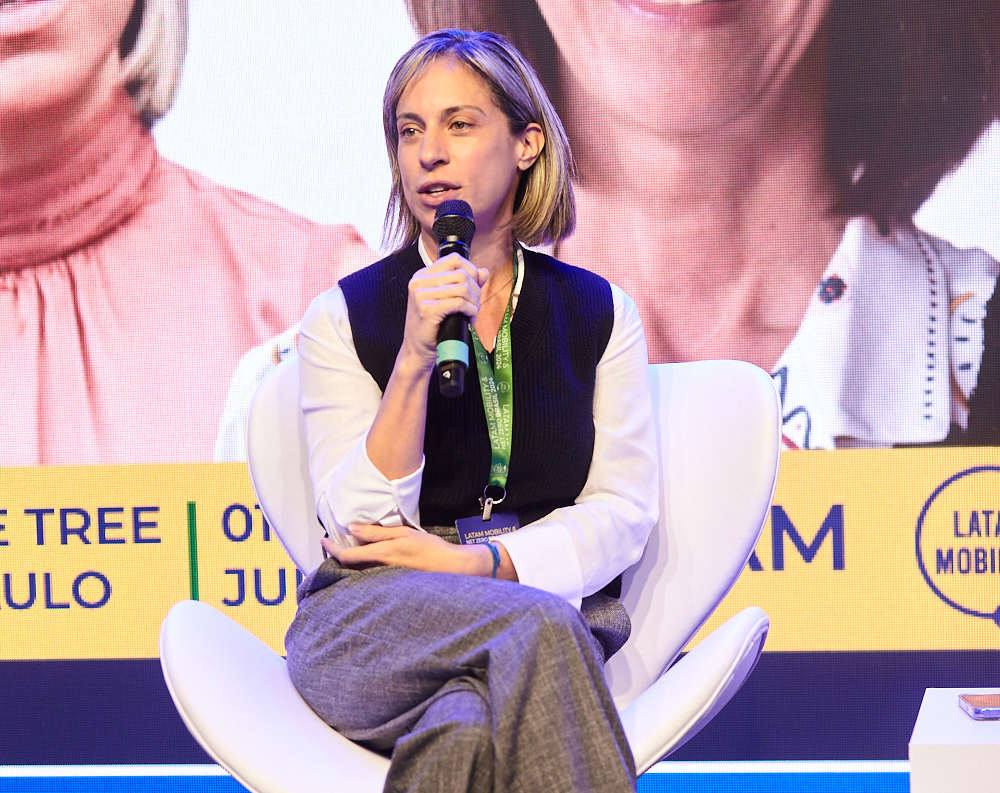
On the other hand, the InvestSP representative made a call to present transport decarbonization projects in São Paulo. “We have the doors open for them to present us with potential projects within the companies, support them and move forward to make them concrete. Together we will be able to carry out the decarbonization plans set by the state.
Global Solutions
Carmen Araujo, Brazil Regional Leader of the International Council on Clean Transportation (ICCT), said that São Paulo has the fourth largest fleet in Brazil. “It is a localized problem, and the solutions go beyond the state, since when we talk about investments we have to look at routes on a larger scale. The question is that when using biomethane, for example, I need to have a distribution channel, and guarantee that this biomethane is clean. We need to know the technologies well, even raise concerns, to keep perfecting the solutions.”
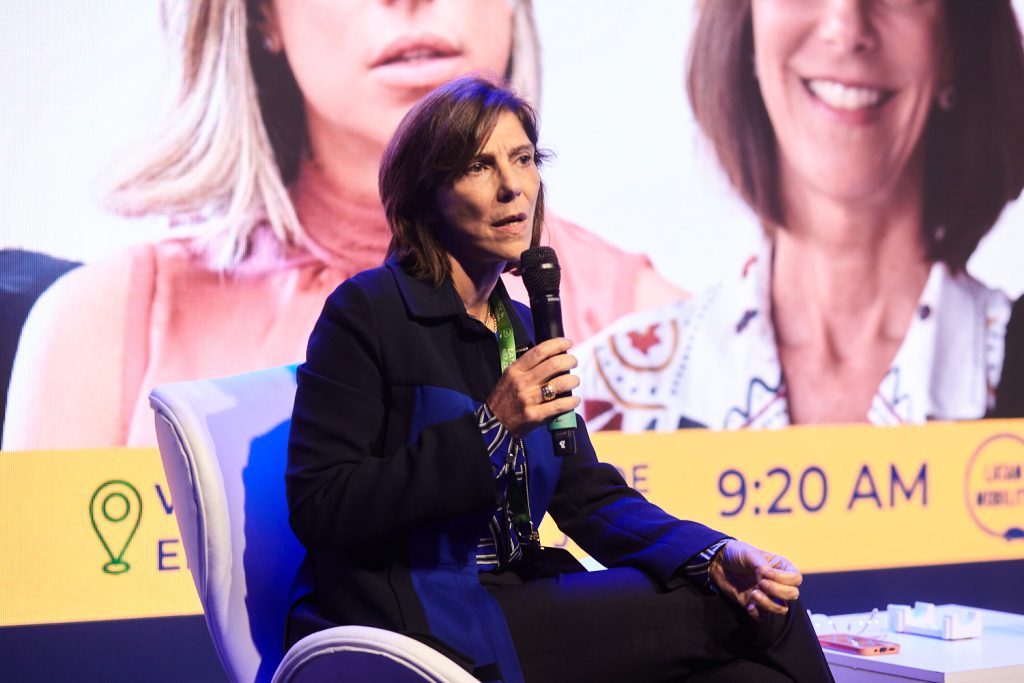
“It is important to understand that in Brazil we are not an island, but we are in a large market. Looking at the decisions on decarbonization that other countries have made, you have to take into account competitiveness, so we have to fit into a bigger picture. What does it mean for Brazil to have its own solution? Our market is important, we are the seventh largest vehicle producer in the world“, emphasized Araujo.
In addition, the ICCT representative said that Brazil has a real advantage in biofuels. “There are sectors that are very complex to decarbonize, such as light vehicles that have a significant use of ethanol, at 28%, and 72% of fossil gasoline, so increasing it would mean tripling its production. We have conducted various analyses, including electromobility, and the results are robust, including in terms of social issues.”
